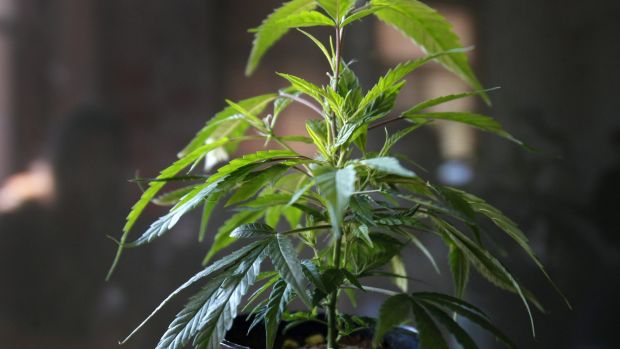
Australia has been flagged as a growth market for medical cannabis. Photo: Max Mason-Hubers
A company that has listed on the Australian Securities Exchange hopes to capitalise on a growing worldwide demand for medicinal cannabis.
PhytoTech, which will source its materials from California and Uruguay and make products in Israel, hopes to supply Israel, Europe, the United States and Canada, but not yet Australia, where medicinal cannabis is still illegal.
Meanwhile, AusCann, which started out as Tasman Health Cannabinoids, is lobbying for the legalisation of medicinal cannabis in Australia, with the hope of supplying the drug in the first state to allow it.
Adam Blumenthal, the director of corporate finance at BBY, the brokerage firm that oversaw the float of PhytoTech, said the initial uptake confirmed his belief that there was a future for medicinal cannabis in Australia.
PhytoTech’s stock, which was floated at 20¢ a share 10 days ago, more than quadrupled to 92¢ in volatile trading before closing at 47.5¢ on Friday.
“I would say in 10 years it could be a billion-dollar industry,” Mr Blumenthal said.
“The global cannabis market is estimated to be worth $US100 billion ($128 billion) and is growing.
“In Australia we’re only scratching the surface. A lot of the interest has come with this float. It is the first ASX vehicle to offer Australian investors exposure to this sector.”
The company aims to supply cannabis products and delivery systems in countries where it is legal.
The increasing support for medicinal cannabis, coupled with NSW Premier Mike Baird’s announcement of medical trials, means Australia has been flagged as a growth market.
Troy Langman, the director of AusCann, said support for medicinal cannabis was accelerating.
“Things are just moving so quickly. Once people find out this provides relief for loved ones, they are going to stop at nothing to get it.”
Liberal MP Catherine Cusack, who is co-ordinating the NSW government’s policy on cannabis, said there would be no decriminalisation or legalisation of the drug.
“It is going to be a permitted activity. There is no way we are decriminalising marijuana – that is not how we see it. It is the opportunity to have a compassionate policy,” she said.
“It is up to the researchers to propose a strategy to source cannabis that is sufficiently consistent in its chemical composition, and an ample quantity is available to meet the high standards of Australia’s clinical trials’ processes. If this supply is to be accessed from overseas, a Customs exemption would be required.”
Mr Blumenthal said he was realistic about the short-term challenges, namely that legislation had to catch up.
“The biggest hurdle the Australian market faces is that the perception needs to change. As more states are looking to legalise the use of medicinal cannabis there will be more room for other players with different approaches,” he said.
Last October, Anthony Bower, director of Mullaways Medical Cannabis, was fined for possessing an estimated $70,000 worth of marijuana on his North Coast property.
Trials of the drug in NSW will investigate its effectiveness in treating epilepsy with more trials next year to look at its use to relieve nausea in chemotherapy patients.
